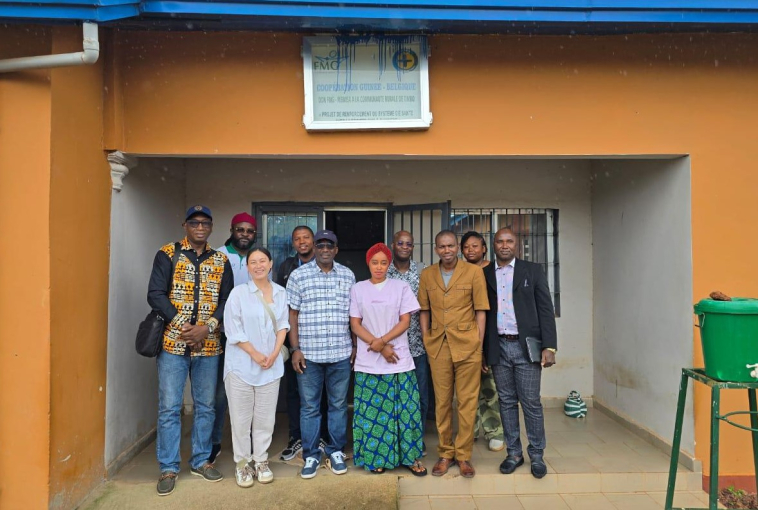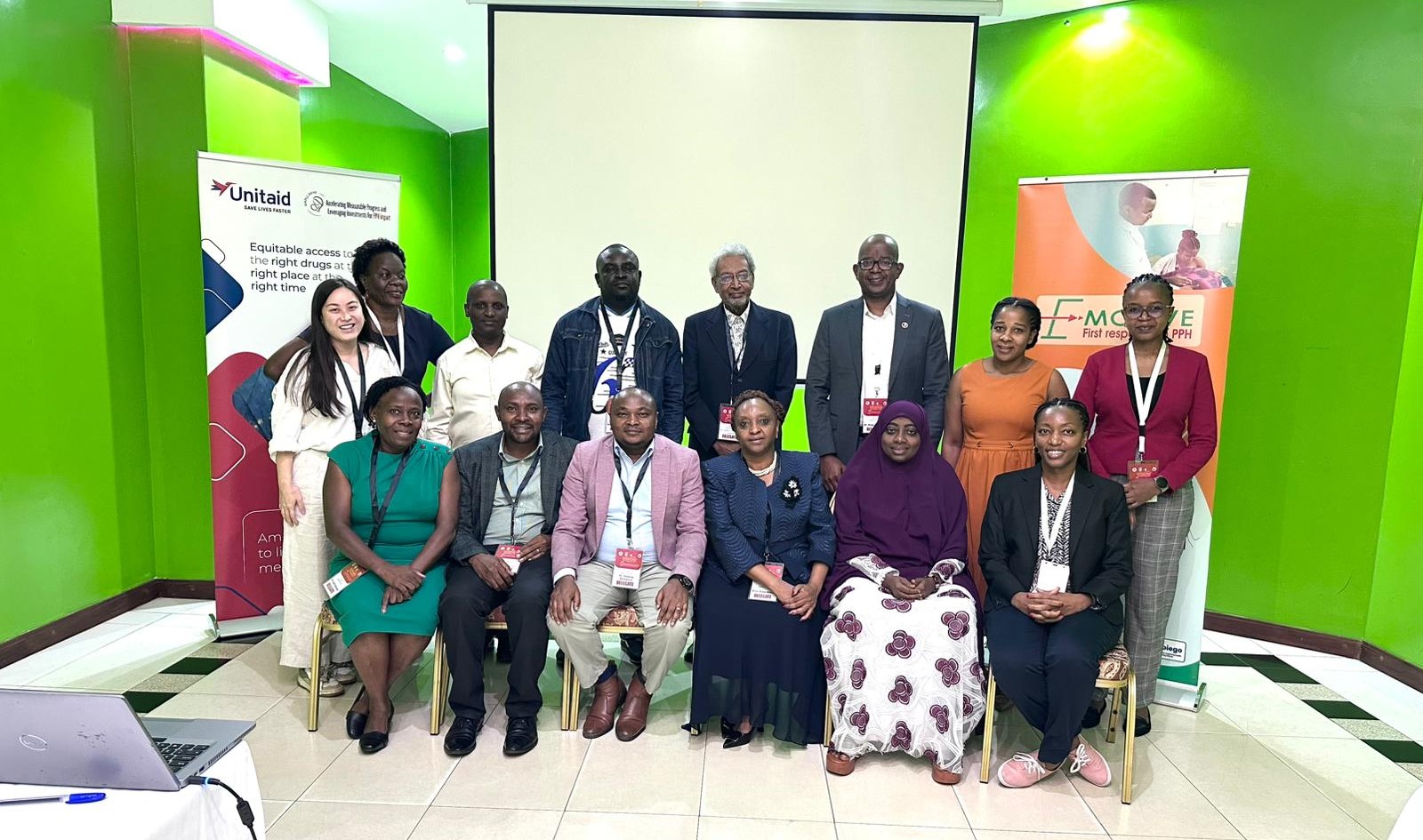Exchange Hubs: moving forward together to reduce maternal deaths

Country-to-country learning and knowledge exchange are crucial to sharing best practices and facilitating the adoption of successful strategies for effecting change. The Accelerating Measurable Progress and Leveraging Investments for Postpartum Hemorrhage Impact (AMPLI-PPHI) project exchange hubs are powerful platforms that foster dynamic collaboration between countries facing similar challenges to prevent and treat postpartum haemorrhage (PPH), so they can learn from and support each other.
Led by core project countries, the hubs help extend reach and influence, strengthening knowledge and technical capacity to implement life-saving medicines and reduce maternal death from PPH. The hubs bring together more than 25 countries and states across Africa and South Asia:
- Guinea Hub, with Mali, Burkina Faso, Bénin and Côte d’Ivoire.
- India Hub, with Bangladesh, Nepal, Sri Lanka and five Indian States.
- DRC Hub, with Cameroon, Congo-Brazzaville and Madagascar.
- Kenya Hub, with Uganda, Tanzania, South Africa and Zambia.
- Nigeria Hub, with three Nigerian states and regional bodies.
AMPLI-PPHI's exchange hubs have made significant progress over the past year, leading deeper discussions and valuable sessions on clinical implementation, barriers to adoption, and opportunities for scaling impact. The hubs are also instrumental to refining advocacy efforts with a view to influence key opinion leaders, including Ministry of Health representatives, and achieve sustainable funding of critical PPH drugs.
Guinea Exchange Hub field visits
In September 2024, Société Guinéenne de Gynécologie-Obstétrique (SGGO) invited representatives from neighbouring member societies in Mali, Burkina Faso, Bénin and Côte d’Ivoire to visit several healthcare facilities participating in the AMPLI-PPHI project.
These visits offered a unique opportunity to witness the positive results of adopting newer drugs to prevent and treat PPH in Guinea, and the impact they have in reducing maternal mortality.
“The impact of the exchange hub on efforts to combat PPH in Mali is enormous. Exchanges and experience-sharing with our colleagues in Guinea have enabled us to ascertain the feasibility and effectiveness of treating PPH using a simple protocol that can easily be reproduced in the African context. These results have led us to include the protocol in Mali's policy documents, standards and procedures for the treatment of PPH.”
Professor Youssouf Traore, Président de la Société Malienne de Gynécologie Obstétrique (SOMAGO)
The experience in Guinea is inspiring society representatives to implement similar projects in their countries and intensify their advocacy work to improve access to game-changing PPH drugs.
Kenya Exchange Hub: 19th AOGU and 6th ECSACOG Scientific Conference

In November 2024, the Kenya Obstetrical Gynaecological Society (KOGS) attended the joint 19th Association of Obstetricians and Gynaecologists of Uganda (AOGU) and 6th East, Central, and Southern Africa College of Obstetrics and Gynaecology (ECSACOG) Scientific Conference and General Assembly. As part of the programme, a dedicated plenary session on the AMPLI-PPHI project provided an in-depth overview of its implementation in Kenya.
The Kenya Hub, which includes members from Uganda, Tanzania and Zambia, held their first in-person meeting on the third day of the conference. All participants engaged in insightful discussions and shared their country's experience with implementing newer PPH drugs. The event provided a valuable opportunity for member societies to support and learn from each other, and led to significant progress on the adoption of PPH interventions in Uganda. As a result of the project’s advocacy efforts, the Ministry of Health of Uganda accelerated its adoption of PPH initiatives, including the acquisition of equipment for PPH training, the procurement of 20,000 doses of heat-stable carbetocin with a commitment to procure an additional 50,000 doses, and the development of Uganda’s PPH costed implementation plan.
Other exchange hubs are set to undertake face-to-face hub meetings in the coming months.
FIGO extends our heartfelt thanks to all societies participating in our exchange hubs for their ongoing commitment, support and hard work. Together, we will close critical gaps in women’s healthcare and reduce maternal death rates worldwide.